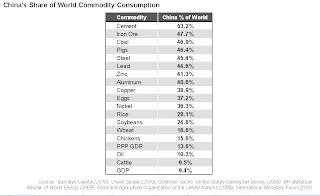The world is using up its natural resources at an alarming rate, and this has caused a permanent shift in their value. We all need to adjust our behavior to this new environment. It would help if we did it quickly.
Until about 1800, our species had no safety margin and lived, like other animals, up to the limit of the food supply, ebbing and flowing in population.
From about 1800 on the use of hydrocarbons allowed for an explosion in energy use, in food supply, and, through the creation of surpluses, a dramatic increase in wealth and scientific progress.
Since 1800, the population has surged from 800 million to 7 billion, on its way to an estimated 8 billion, at minimum.
The rise in population, the ten-fold increase in wealth in developed countries, and the current explosive growth in developing countries have eaten rapidly into our finite resources of hydrocarbons and metals, fertilizer, available land, and water.
Now, despite a massive increase in fertilizer use, the growth in crop yields per acre has declined from 3.5% in the 1960s to 1.2% today. There is little productive new land to bring on and, as people get richer, they eat more grain-intensive meat. Because the population continues to grow at over 1%, there is little safety margin.
The problems of compounding growth in the face of finite resources are not easily understood by optimistic, short-term-oriented, and relatively innumerate humans (especially the political variety).
The fact is that no compound growth is sustainable. If we maintain our desperate focus on growth, we will run out of everything and crash. We must substitute qualitative growth
for quantitative growth.
But Mrs. Market is helping, and right now she is sending us the Mother of all price signals. The prices of all important commodities except oil declined for 100 years until 2002, by an average of 70%. From 2002 until now, this entire decline was erased by a bigger price surge than occurred during World War II.
Statistically, most commodities are now so far away from their former downward trend that it makes it very probable that the old trend has changed – that there is in fact a Paradigm Shift – perhaps the most important economic event since the Industrial Revolution.
Climate change is associated with weather instability, but the last year was exceptionally bad. Near term it will surely get less bad.
Excellent long-term investment opportunities in resources and resource efficiency are compromised by the high chance of an improvement in weather next year and by the possibility that China may stumble.
From now on, price pressure and shortages of resources will be a permanent feature of our lives. This will increasingly slow down the growth rate of the developed and developing world and put a severe burden on poor countries.
We all need to develop serious resource plans, particularly energy policies. There is little time to waste.
Grantham buys into a range of arguments regarding peak oil, climate change, resource depletion, and agricultural shortfalls, but only for the medium to longer term. In the short term, he is much more cautious. The weather was so bad this past year (Russian drought, Australian floods, etc.) that--nature being mischeivous--it will probably get better next year. The big uncertainty, however, concerns what happens in China. China is responsible for an extraordinary share of the world's consumption of basic materials, and there is much in the Chinese investment boom that suggests a bust is coming. Grantham does not rule out a 2008 type scenario, in which commodity prices collapse along with economic growth. But then, he suggests, comes the mother of all buying opportunities.
Update:
Here's another chart, from the dry bulk shipper Genko, showing China's dominance of iron ore imports:



No comments:
Post a Comment